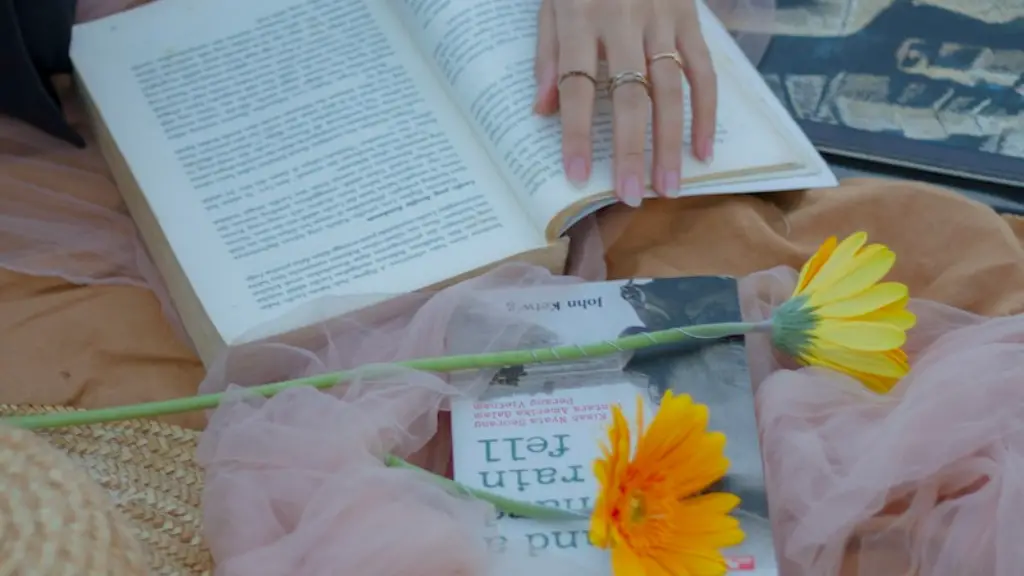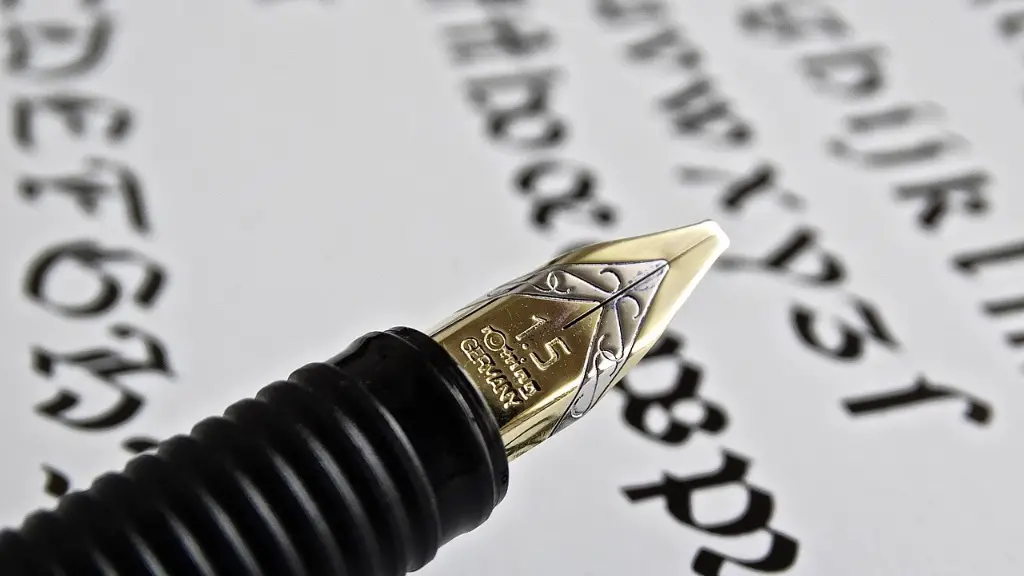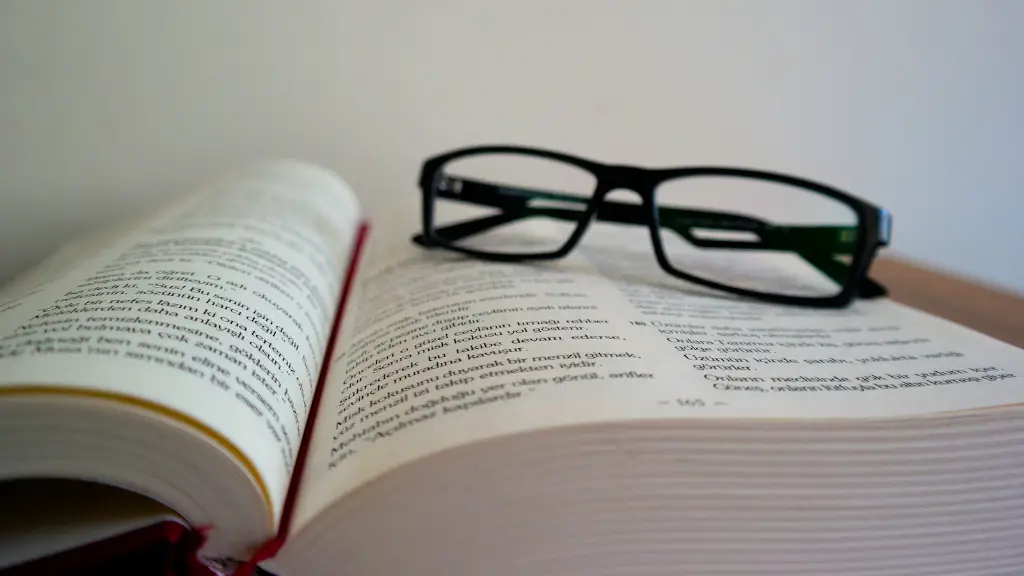Spoken word and poetry are two art forms that have been around for centuries and often used interchangeably, yet they have some key differences. Many of us have heard about spoken word and seen jaw-dropping performances of it, yet still have no idea what sets it apart from poetry. To help clarify any confusion, let’s take a closer look at the differences between the two.
To begin with, spoken word and poetry have different origins. Whereas spoken word is rooted in hip hop culture, poetry is considered a traditional art form. Spoken word can be traced back to the mid-1970s, when it emerged as part of the hip hop culture in the Bronx, New York. This form of expression is often improvised and focuses heavily on storytelling and often features rhymes, metaphors, and alliteration. Poetry, on the other hand, has been around for centuries and has been used for many different purposes such as expressing emotions, describing nature, and conveying lessons.
If we have a closer look at the structure, we can shed some light on the differences between spoken word and poetry. Poetry is traditionally structured with a specific number of lines and syllables per line. This gives the poem a lyrical and rhythmic feel. In spoken word, however, structure isn’t as important as content. Though it may have some rhythm, spoken word is often an improvisation, with the performers improvising, making punctuations and playing with rhymes throughout the performance.
Furthermore, when it comes to content, the two art forms differ quite significantly. Poetry can explore any topic the poet wishes and has been used to express many different kinds of feelings and ideas. Spoken word, on the other hand, often deals with topics such as politics, social change, and personal struggles. It can be used as a platform for the performer to share their thoughts and experiences.
Lastly, when it comes to the delivery of the art, poetry and spoken word differ significantly as well. Poetry is often written to be read, whereas spoken word is written to be performed. In terms of performance, spoken word has a special emphasis on the physical body and movement of the performer, whereas poetry can be performed more quietly and without any movement.
Implications of Performance
The two art forms also have different implications when it comes to performance. Since poetry is traditionally written to be read, it is often kept to a certain form and structure and so, there is less space for improvisation than in spoken word. In spoken word, however, improvisation is a key part of the art form, and performers often use their bodies and voices to make a much stronger impact with their performance which can be very powerful.
In addition to this, spoken word often has the goal of making a much more direct connection with its audience by reaching out to their emotions and experiences on a personal level. Many spoken word pieces attempt to evoke strong emotions such as compassion, passion, and hope, whereas poetry can be more cerebral and contemplative.
Ultimately, spoken word and poetry are distinctly unique art forms with different purposes. Though both can be used to express emotions and ideas, spoken word performances often come from a more personal place, with a goal of connecting with people and making them think critically about a wide range of topics.
Implications of Language
Language is another key difference between spoken word and poetry. Whereas the language used in poetry is traditionally more formal and often uses literary devices such as metaphors and imagery to evoke certain emotions, spoken word often uses a more conversational style with less emphasis on literary devices and more emphasis on the message of the performance.
In spoken word, it is also much more common to use slang, abbreviations, and street language which can be very poetic but has a much more direct and immediate impact. It is often used to make a political statement or convey a certain emotion or experience. In poetry, however, the language is often more metaphorical and contemplative and the aim is not so much to make a statement but rather to explore ideas more deeply.
All in all, there are many differences between spoken word and poetry and understanding these differences is key to being able to appreciate both forms of art.
Implications of Audience
The audience for spoken word and poetry are also quite different. While poetry has traditionally been seen as an art form for educated audiences, spoken word has become a more populist art form, often performed in public spaces and intended for a much wider audience. Therefore, spoken word performers usually try to make their performances as accessible as possible in terms of subject matter, language, and performance style.
Furthermore, spoken word is often performed as part of a larger event with other performances and activities, and so, it can be seen as a way to get people together and give a platform to those who are less heard. Whereas poetry is often considered a solitary art form, spoken word has a much more communal aspect to it, making it more inclusive and engaging.
On the other hand, poetry allows the poet to express their thoughts and feelings in a more personal and intimate way than spoken word. Whereas spoken word performances are often seen as a platform to make a statement, poetry allows the writer to explore their emotions and experiences more intimately.
Implications for the Writer
Despite the differences between spoken word and poetry, one thing they have in common is that they both require skill and dedication. For a spoken word performance to be effective, it has to be well-structured and narrative, and the delivery and body language of the performer also play an important role in conveying the message of the piece. Similarly, poetry requires skill and dedication to create a unique and memorable piece. From the choice of words to the structure of the poem, the writer has to be intentional and creative in order for the poem to have an impact.
Additionally, both art forms require openness and vulnerability from the performer or writer. In spoken word, this means that the performer has to be comfortable sharing their thoughts and ideas with an audience, and in poetry, it means that the poet has to be willing to share their innermost thoughts openly and honestly. Both are admirable and challenging traits to have and require a certain level of fearlessness and courage.
Implications of Technology
Technology has had an important role in both spoken word and poetry in recent years. With the use of social media, poets and spoken word performers have been able to reach wider audiences and make their work more accessible. Nowadays, it is much easier to find and access performances and written poems than it used to be, and this has opened up doors for many emerging artists to share their work and be heard.
Additionally, technology has allowed poets and spoken word performers to collaborate to create more innovative works and reach larger audiences. Through platforms like YouTube, Instagram, and SoundCloud, artists are able to share their work and collaborate with others to create amazing pieces of art that would otherwise be hard to produce.
Finally, technology has greatly influenced the way both poets and spoken word performers create and deliver their work. With the use of video editing software, performers are now able to enhance their performance videos to give them a more professional look, and poets are able to use digital platforms to create and share their work in more creative ways.
Implications for Education
Spoken word and poetry can also be powerful tools in the educational sphere. From classrooms to youth groups, both art forms can be used to create meaningful spaces for creative expression and engage young people in thoughtful dialogue. Both poetry and spoken word can be used to explore different topics and foster critical thinking in young people, and can also be used to create meaningful dialogue on sensitive topics such as mental health, identity, and social justice.
In addition to this, spoken word and poetry can be used as a form of therapy, helping young people process their feelings and experiences in a safe and supportive environment. They can also be used to encourage young people to think critically about the world around them and find their own unique voice.
Ultimately, both spoken word and poetry are powerful forms of storytelling, with each having its own unique characteristics and implications. While spoken word often deals with themes that are personal, political, and urgent, poetry often explores ideas more deeply, creating an atmosphere for contemplation and introspection. Both forms of art, however, require skill, dedication, and creativity to create meaningful and effective work.





